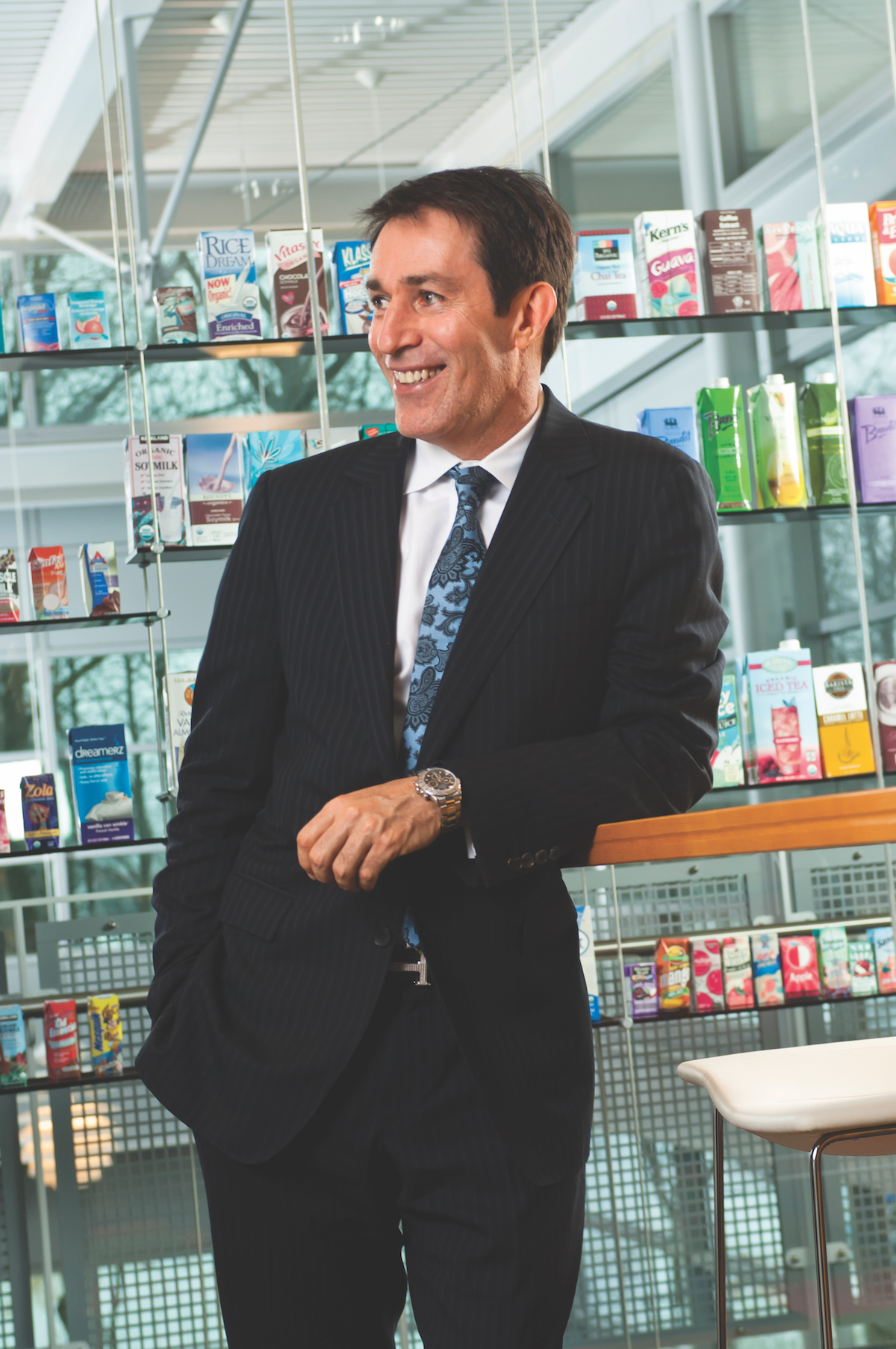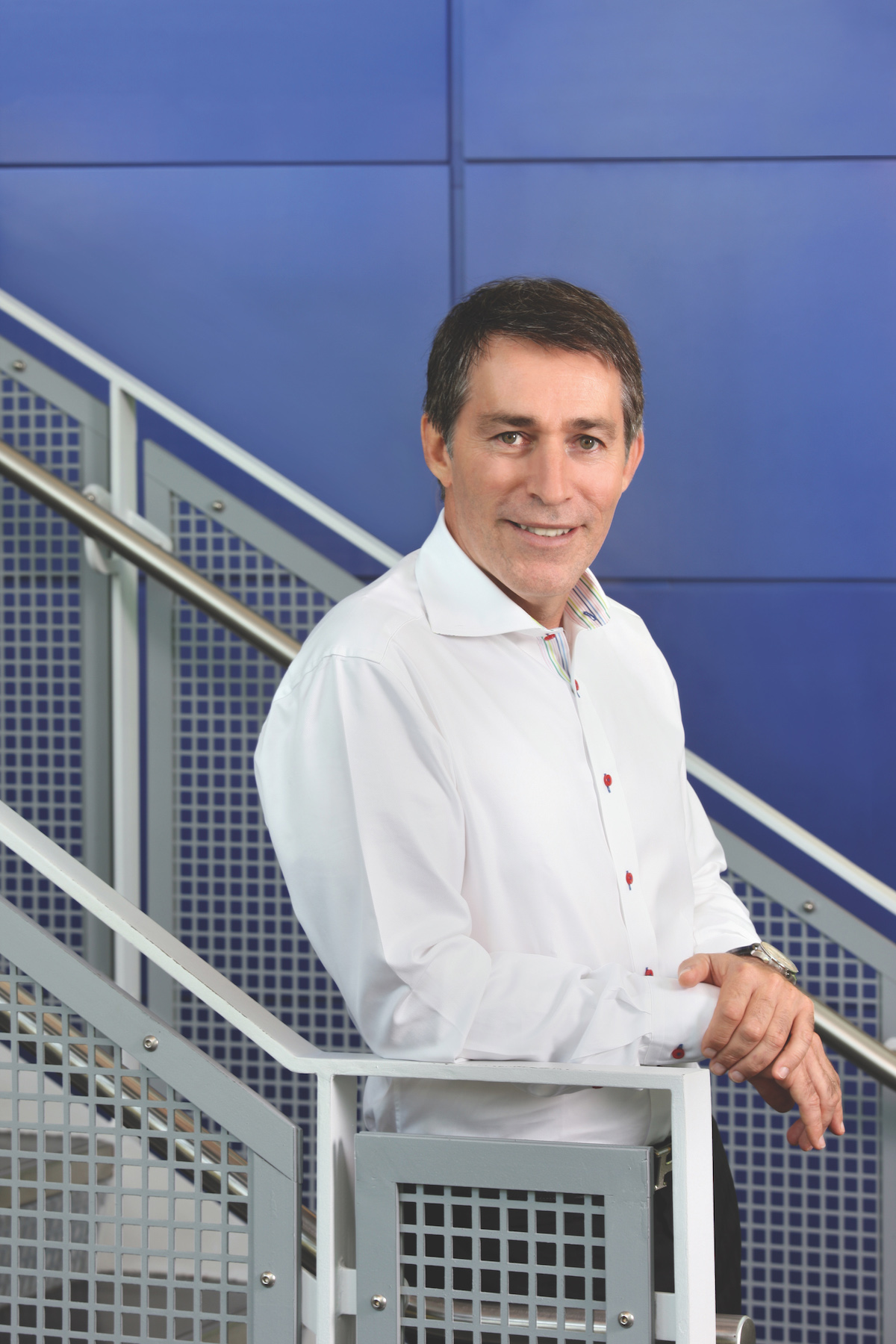In the 40s, Dr Ruben Rausing started out with a small philosophy — a package should save more than it costs. Little did he know that his quest to find an innovative packaging solution for liquid food would lead to the development of a technology that would later be hailed by the American Institute of Food Technologists as “the most important food science advancement of the twentieth century.” The company’s vision of ‘making food safe and available, everywhere’ remains as relevant now as it was in its early years.
Today, more than 60 years after entering the market, Tetra Pak continues to be the global industry leader, providing its customers with not only packaging solutions but a complete array of integrated end-to-end solutions — be it product formulations, technical expertise, processing and packaging equipment, and many other value-added services. With more than 184 billion packages sold worldwide in 2015, and global sales of €11.9 billion, the company enjoys strong presence in over 170 countries.
“Tetra Pak has a phenomenal organisational culture that strongly promotes an entrepreneurial spirit,” says Michael Zacka, the Singapore-based Cluster Vice-President of
Tetra Pak South Asia, East Asia and Oceania, and member of the Global Leadership Team. It’s one of the main reasons why Michael has remained with the company he joined as the general manager of Australian operations
in 1995.
“Tetra Pak isn’t political; it isn’t hierarchical; it’s incredibly entrepreneurial and customer-centric. I love to be part of the organisational culture and dynamics, because we have such a powerful vision and a strong performance-driven culture.”

“Tetra Pak isn’t political; it isn’t hierarchical; it’sincredibly entrepreneurial and customer-centric.”
Over the course of our conversation, it becomes clear that Tetra Pak offers what Michael phrases as “an extremely dynamic environment to work in,” with a commitment to not just the industry but society overall. “Our company’s motto is ‘Protect What’s Good’, which includes protecting not only our interest but also that of our customers and consumers, as well as other stakeholders in the value chain. We are focused on staying true to the innovation trail, to drive sustainability and our corporate and social responsibilities,” he says.
Tetra Pak’s unique aseptic technology and packaging has successfully made safe food accessible to consumers in the remotest parts of the world, especially in developing markets lacking chilled chain infrastructure.
“This was the platform that the company built its reputation and success on,” Michael says. But Tetra Pak is much more than one pioneering product. “I think we can proudly say that we are the world’s only truly integrated processing, packaging and service supplier, and have introduced many global firsts,” he continues. This includes the world’s first carton pouch. “You might think, ‘What’s unique about that?’ Well, it offers the same functional benefits of a plastic pouch with a much stronger environmental and sustainability profile.”
He identifies 3 particularly exciting technologies the company has invested much time and money into developing. Tetra Recart® is a lightweight yet robust carton alternative to cans. “It means that there are fewer trucks on the road and more space on the retail shelf, with far stronger consumer preference,” he says, a win–win scenario. Introduced in 2015, Tetra Rex® is the world’s first all-renewable carton, made from a combination of plastics derived from sugar cane and paperboard. Another world first is Tetra Evero® Aseptic, which is an aseptic carton bottle that offers exceptional convenience and consumer appeal.
One of the company’s key priorities— sustainability — is a term he understands means different things to different people. “At the highest level, we define it as the ability to meet the needs of the present without compromising the ability of the future generations to meet their own needs.
“Our packages are fully recyclable, and our paperboard is FSC [Forest Stewardship Council] certified, meaning that it comes from responsibly managed and certified forests. It is something we are extremely passionate about,” he says.
In the quest to minimise its carbon footprint, Tetra Pak joined the RE100 in 2016 and has committed to operating entirely on renewable energy by 2030. He explains how the company works with not just its own customers and suppliers but also municipalities and governments to promote sustainable practices. “We firmly believe we should take the lead on the sustainability and environmental agenda. We are in a position to shape the industry to create a better environment for the future.”
This agenda is one that Michael saw as an opportunity to promote further in Asia when he accepted his current role in 2014. “It may be on everyone’s lips, but not many people walk the talk in Asia, with most people not fully understanding how to create sustainable value chains,” he explains. His mandate in Asia–Pacific covers more than 30 countries “or roughly a third of the world’s population,” as he puts it. This appointment marks his second stint with the company in the region, the first in the late 90s when he was made managing director of Tetra Pak Vietnam at the age of 30 (a fact that further highlights the entrepreneurial spirit of the company). “Being in Asia is such a wonderful opportunity,” he enthuses. “Asia is progressive. It’s arguably the number one growth engine of the world. So it’s a real privilege and a big responsibility to be here.”
Growth is exactly what Michael has set his sights on. “The first observation that I had when I arrived was that the growth ambitions were not at the levels that they should have been.” After quickly assembling a new management team, extensive fact-based analysis was undertaken to identify the growth opportunities in each market. The team asked themselves: What would it take to double our growth rate versus previous years? “Focus was put on developing growth strategies for existing liquid dairy, juice and food categories through the consumer lens.” A robust growth path was anchored, with strong team buy-in across all countries, with customer-centricity at the heart of our approach,” he says.
Three years on, has the target been achieved? “In 2015 and 2016, we doubled our packaging growth rates in absolute terms, in relation to the previous years. So, yes, we are on track, with optimistic ambitions,” he reports.
He is quick to deflect much of the praise to his team. “They are a world-class team and they do a phenomenal leadership job across all geographies, developing and keeping the staff motivated, and keeping them on task, providing support, and ensuring that we deliver passionately on the KPIs while staying customer-centric,” he says.

“You can have the world’s best products and services, you can have the world’s best strategy, but my 20 years of being a senior executive have shown me that it’s the people who make the difference.”
Along with ensuring “that we uphold our environmental excellence, and that our quality and innovation remain world class,” driving the highest level of customer-centricity and ruthlessly managing costs are 2 big areas of focus. He adds that perhaps his biggest priority is growing the company’s talent base. “You can have the world’s best products and services, you can have the world’s best strategy, but my 20 years of being a senior executive have shown me that it’s the people who make the difference,” he says.Michael says he surprised even himself by leaving “a big brand name in FMCG for a packaging company,” but Tetra Pak won him over from the start. “During the interview process, I realised just what a unique company it was.” He uses the word ‘family’ to describe the atmosphere, although we’re not to interpret that in a warm and fuzzy way. “It’s used in a way that is respectful while still remaining challenging, entrepreneurial and result-oriented,” he says The buzz of constant change is one of the things he loves most about the industry and the company: “The companies who embrace change are the ones that will survive in the future.” Tetra Pak, he says, fits the mould. “Consumer segments are becoming increasingly fragmented, and therefore packaging solutions are required to address those needs,” he continues. Nowhere is this more pertinent than in developing markets. “These are countries where much produce has traditionally been consumed loose,” he says. “People would make orange juice or watermelon juice at home, but as the GDP grows in these countries, we have witnessed a huge move from loose to packaged consumption.”
Whether developed or developing, however, all markets share a growing awareness of food safety, and Michael cautions that “brand owners really need to have their systems in place for food traceability and they need to be 100% confident in the source of their produce.”
The opportunities presented by the changing digital landscape have the potential to transform the industry. “In the not-too-distant future, you’ll be able to take a pack from the shelf, scan it, and immediately be shown intricate details such as where it was produced, when, and by whom,” he predicts.
“Digital technology is really changing the landscape of the entire value chain globally, outside of traditional social media,” he says, offering one exciting example. “Imagine a newly built dairy in a remote corner of India. Tetra Pak will soon have the capability to dial into that particular site, and through, for example, the use of 3D glasses and other technology, will have the capacity to guide the customer technicians on site through the troubleshooting process of repairing equipment,” he says. “In the traditional analog world, if a customer logs a problem, they may have to wait anywhere from a few hours to a few days to get assistance, depending on how remote they are.”
This, he says, is only one example of the technology Tetra Pak currently has in development. “It’s not just about driving productivity,” he says. “Of course, you must at the same time innovate, because if you don’t, your relevance in the value chain slowly becomes diluted.” Six decades on, Tetra Pak continues to channel the spirit of Ruben Rausing across its global operations. “We are committed to remain the industry leader on innovation.”



